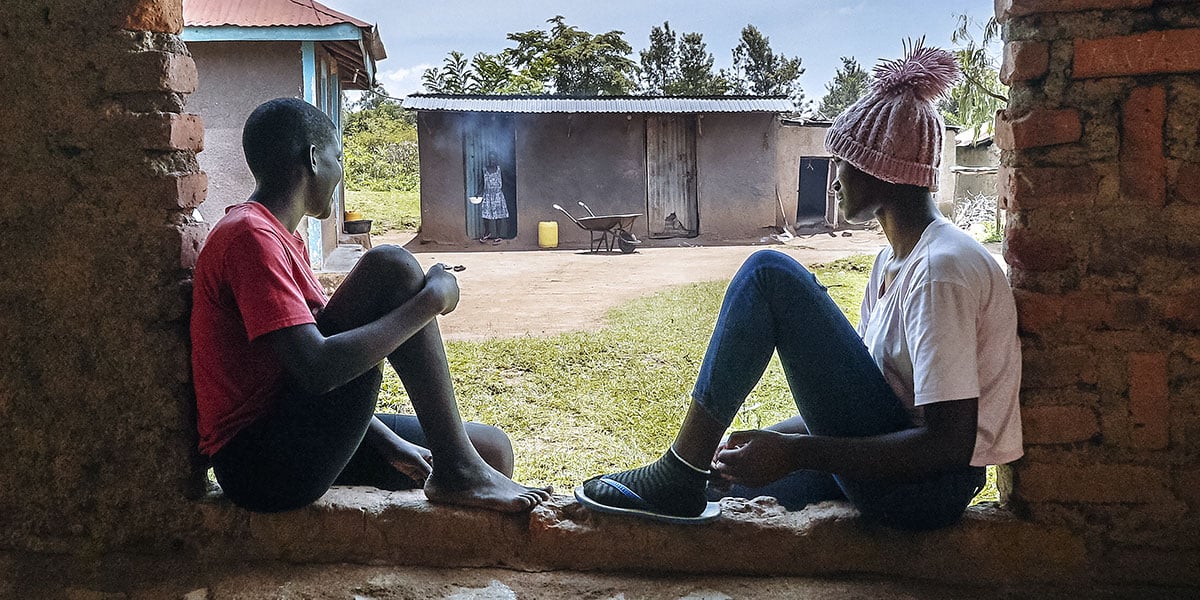




Dir.: Lauren DeFilippo, Sam Soko; Documentary with Michael Faye, John Omondi, Isaac Nyamori, Mary Anyango Songa, Jael Rael Axhieng Songa, Larry Madowo; Kenya/USA 2022, 78 min.
Kenyan director Sam Soko (Softie) and her US counterpart Lauren DeFilippo (Red Heaven) have researched the impact of fast growing Non-Profit agency GiVE DIRECTLY (GD), founded by Michael Faye and three of his fellow students from Harvard and MIT.
GD has come up with a revolutionary idea to fight poverty in eleven countries, giving participants in the scheme $22 a month for twelve years. The pilot scheme will run until 2031.
Caroline Teti, who works for GD, is aware she does not represent the emissary from the First World, promising much and delivering nothing. Near the Kenyan village of Koogutu, where GD’s recipients of UBI (Universal Basic Income) live, there are houses without roofs, financed by Kenyans who were told they could sell them for a profit after purchase, when the real estate company had installed the roofs – something that never happened.
The men of the village are particularly sceptical, they fear that their women will grow horns and leave them – part of a satanic cult which promises money but instead takes the souls of the recipients.
Larry Madowa, a journalist with the BBC, who grew up in the area, keeps an eye on the GD activities. He is sceptical – and so is the audience, when we find out that Google is one of the the main investors in GD. Anyone in the village who is over 18 will receive the money monthly via a smart-phone transfer, itself a novelty. The directors chose to follow two participants in the scheme, John Omondi (18) and Jael Rael Achieng Songa (16). Whilst John receives the 2280 Kenyan Sterling monthly payments, Jael is the victim of a bureaucratic bungle, and is left penniless. Meanwhile her girlfriends go to school and gain an education, which will set them free. John later encounters difficulties in Nairobi, where he wants to study, but the capital is an expensive place. The villagers runs a lottery, and one day Jael is the winner, and together with help of her family she can now also start school.
At a visit at the local call centre we can see the progress the young people have made thanks to technology, after the initial shock of having to use a mobile.
There is no easy answer here. No one knows what will happen when the scheme runs out in 2031. Yes, maybe the recipients of UBI serve as guinea pigs, but GD is trying to break the charity mould, and it’s well worth a try, in spite of early pitfalls. After all, in the First World the workforce was paid to stay home during the pandemic.
Four different DoPs follow the participants in this trial and error exercise. It seems that the improvements to their homes have alone made it all worthwhile. And on the local market, UBI recipients get preferential treatment because the traders know they will not ask for credit. AS
FREE MONEY, in cinemas and on demand, on 21st April.